Arrested on November 19, 2015 with another friend, Fakhri El Ghezal, after a police raid on a property suspected of terrorism-related activities, the three were initially sentenced to one year in prison under the false pretext of cannabis possession. After a major public response led to an appeal of the verdict, they were acquitted and their case dismissed on December 21, 2015. However, one month and three days in prison were enough to change their lives.
‘‘Get up, you son of a bitch!" For Atef, this is how the first morning in the Mornag detention center began. He remembers vividly the three stars stitched onto the shoulder of the guard who shouted that morning wake-up call. Then comes the roll call, the aarsseb, and then nothing more until the second roll call in the afternoon. The three friends are all separated. Atef spends his days in an 80 square meter cell with 104 other inmates while Alaeddine spends his in an identical cell with 110 other inmates.
Tunisia has 25,000 people incarcerated in 28 prisons, including 19 pre-trial detention centers. The only investigations into the conditions of prisons in Tunisia have been carried out by lawyers, such as Hela Hammar, and a UN report published in 2014. The UN report found that the prisons were overcrowded, unhygienic, and placed certain inmates in immediate danger by failing to separate them based on the severity of their crimes.
Other public figures have criticized the conditions in Tunisian prisons. The European Union's ambassador to Tunisia recently announced a partnership with Tunisia to help improve the country’s governing of prisons. President Béji Caïd Essebssi also promised to amend Law 52 which criminalizes both the consumption and possession of narcotics in a speech he made on the fifth anniversary of the Tunisian revolution.
But in reality, these statements are only promises of future reforms. In practice, abusive and unlawful arrests still continue. The majority of detainees are not convicted criminals and are waiting to stand trial. Many are young, and a spell in prison risks turning their lives upside down
"Thus, the prison has become exclusively a penal institution instead of an institution designed to temporarily deprive individuals of liberty whilst implementing structures that enable their re-education and rehabilitation," states the UN report.
Many young people like Alaeddine, Atef, and Fakhri have experienced the prison system at least once in their lives. While the primary reasons for incarceration are rape and burglary, accounting for 31% of all charges according to the UN report, drugs come in second place, representing 26% of prisoners. This is then followed by homicide or violence and possession of weapons. 55% of prisoners are between 18 and 29 years old.
During the year 2015, many young people were imprisoned under Law 52. Others were targeted for their sexuality, others for indecent behavior, or violating public order (drunkenness). Alaeddine and Atef testify about the impact time in prison is having on Tunisian youths.
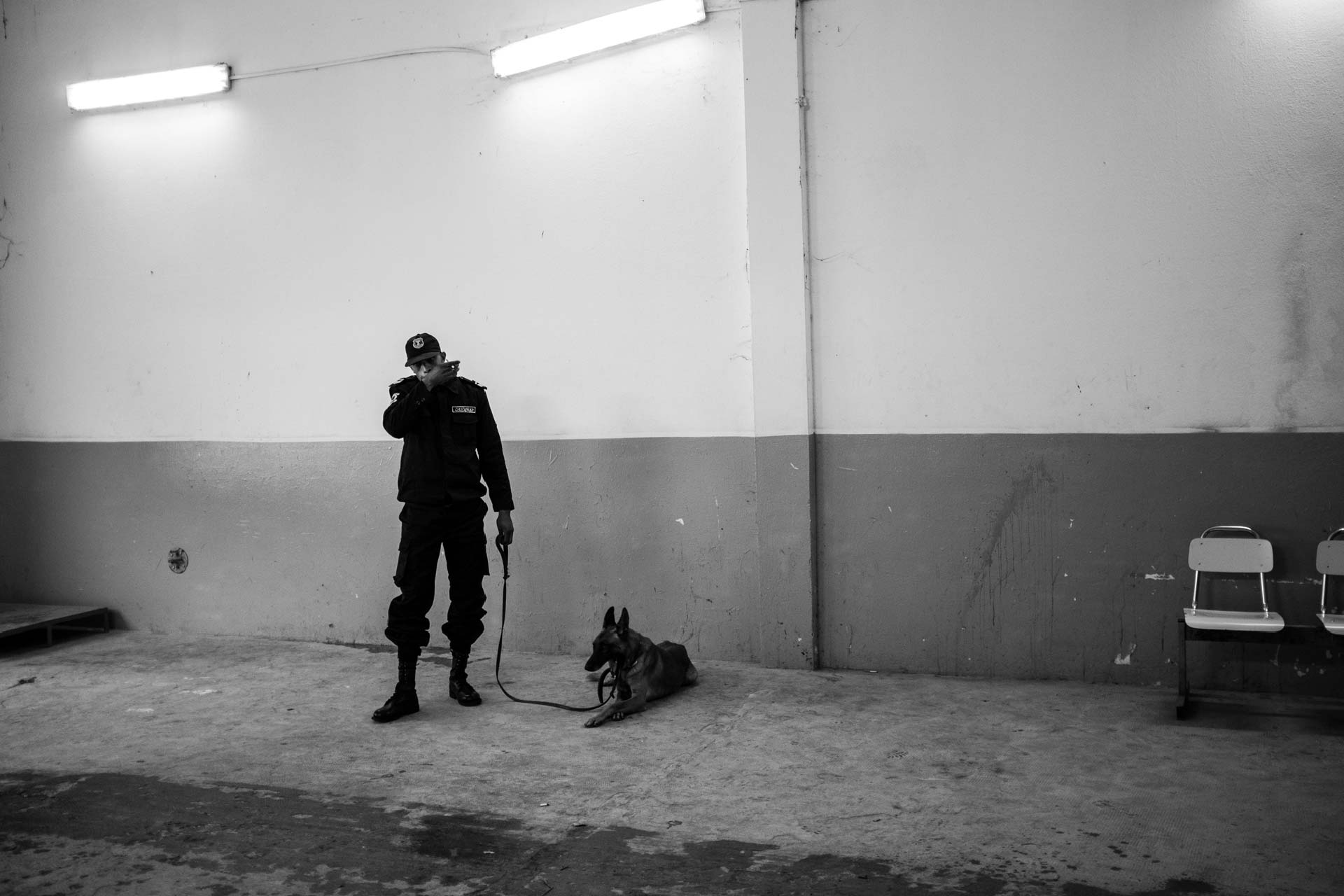
First steps
In order to see each other for even fifteen minutes, the three friends have to negotiate with the guard through a precious packet of cigarettes. "Cigarettes open all the doors in prison. You can have someone do your washing for you, someone else does your dishes, and of course, you can make money from the guards," says Atef.
Each prisoner is entitled to 100 dinars a week donated by his family, which is then converted into coupons, like Monopoly tickets. The prisoner then has to manage his money to buy what he needs.
"They don't give you anything, so you have to buy everything yourself: cigarettes, food, medicine... and watch out for scams in the prison shop," says Atef. The 34-year-old artist has Crohn's disease, a digestive disorder that causes stomach pain. He also has to take Ventolin for his asthma. To see a doctor, he is required to wait for days.
"The nurse told me, wait till you see the doctor because he didn't know about Crohn's disease, but the guards also tell you the doctor's not here. Anyway, they all look the same, nurses and guards. They wear the same leather jacket and even have the same walk," Atef comments.
Throughout the day, the baskets of food his family brings for him twice a week offer him an alternative to the soup served twice a day: "A big pot with a bit of tomato and pasta, sometimes if you're lucky, chickpeas, other times bits of dirt," adds Atef.
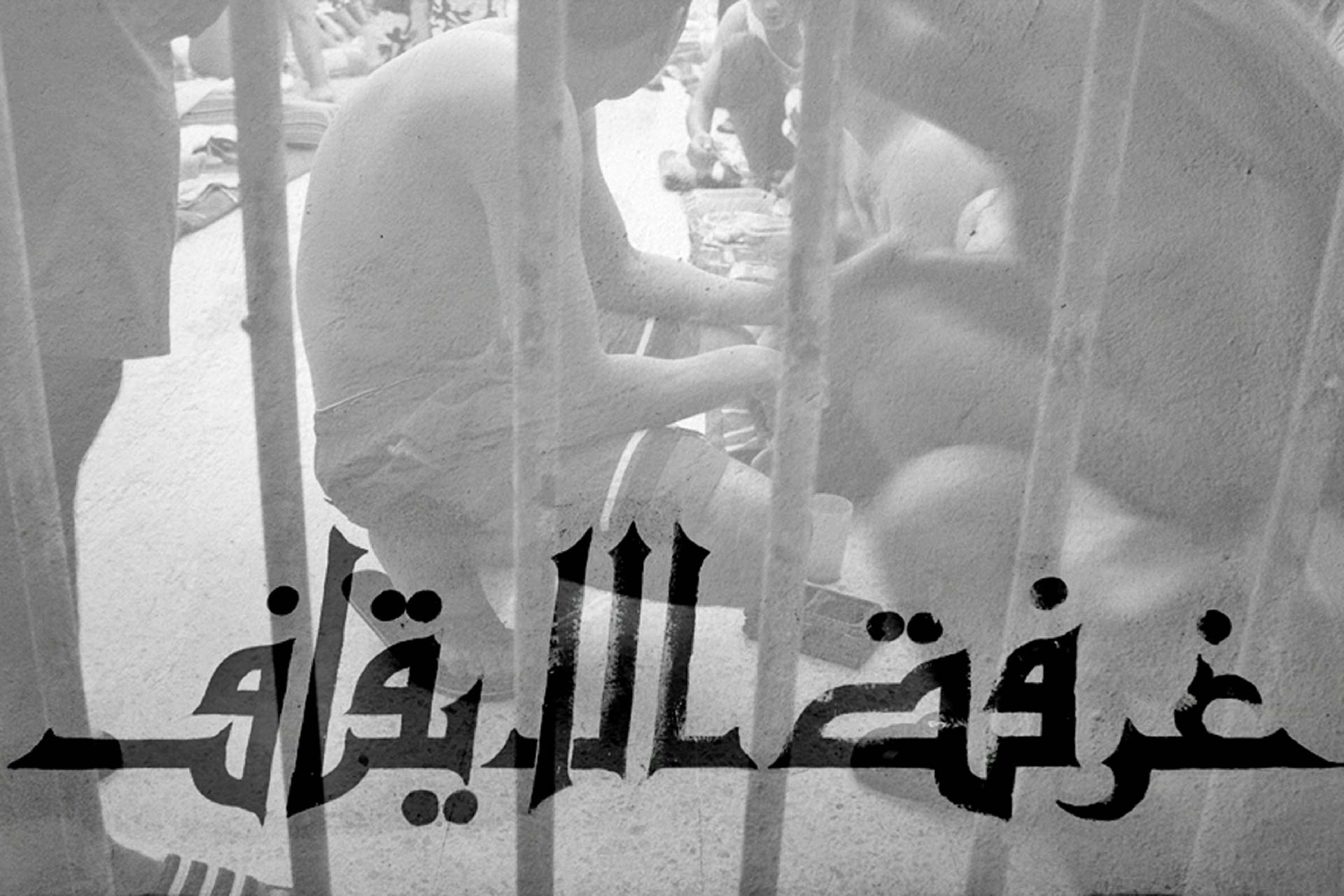
Imprisoned over joints
After a week in detention in Nabeul, the three men were sent to Mornag after a trial that lasted just ten minutes. It was a chilling verdict: one year in prison and a 1,000 dinar fine for possession of narcotics on the basis of the famous Law 52.
Article 2 of the law stipulates that, "The cultivation, consumption, production, harvesting, possession, ownership, purchase, transport, circulation, transfer, offer, delivery, trafficking, distribution, brokerage, import, export, manufacture, extraction or smuggling of the natural narcotic plants referred to in article 1 of this law are absolutely prohibited."
"You get an idea in your head of what it’s going to be like after spending the first few days with other people waiting for your verdict. We were locked up with a toilet in the middle of the cell, in Nabeul, and were unable to contact our families. But when you get to Mornag, it's worse than you had imagined," says Atef.
In Nabeul, they are handcuffed two by two and locked up in groups of 16 in a space of five by six meters and then taken by van to Mornag, south-east of Tunis. A few days earlier, Atef was drinking beers with Alaeddine and other friends, discussing his next film, which he was planning to shoot in the coming months.
Like other young men in their thirties, they had grown beards for aesthetic reasons. Ultimately, it was the "suspicious movements" of these "bearded men" carrying "big bags" (actually containing filming equipment) into a house in Nabeul that motivated the police to conduct a raid.
However, after finding nothing that could incriminate the young men for terrorism-related offenses the police faced the issue of having to justify their error of judgment. So they focused on another set of objects they discovered in the house: joints. The three men were therefore tried and convicted. Alaeddine is the co-founder of the production company Exit Production, Atef is a painter and Fakhri is a photographer. However, within the walls of Mornag, they are mixed in with notorious delinquents and dangerous criminals.
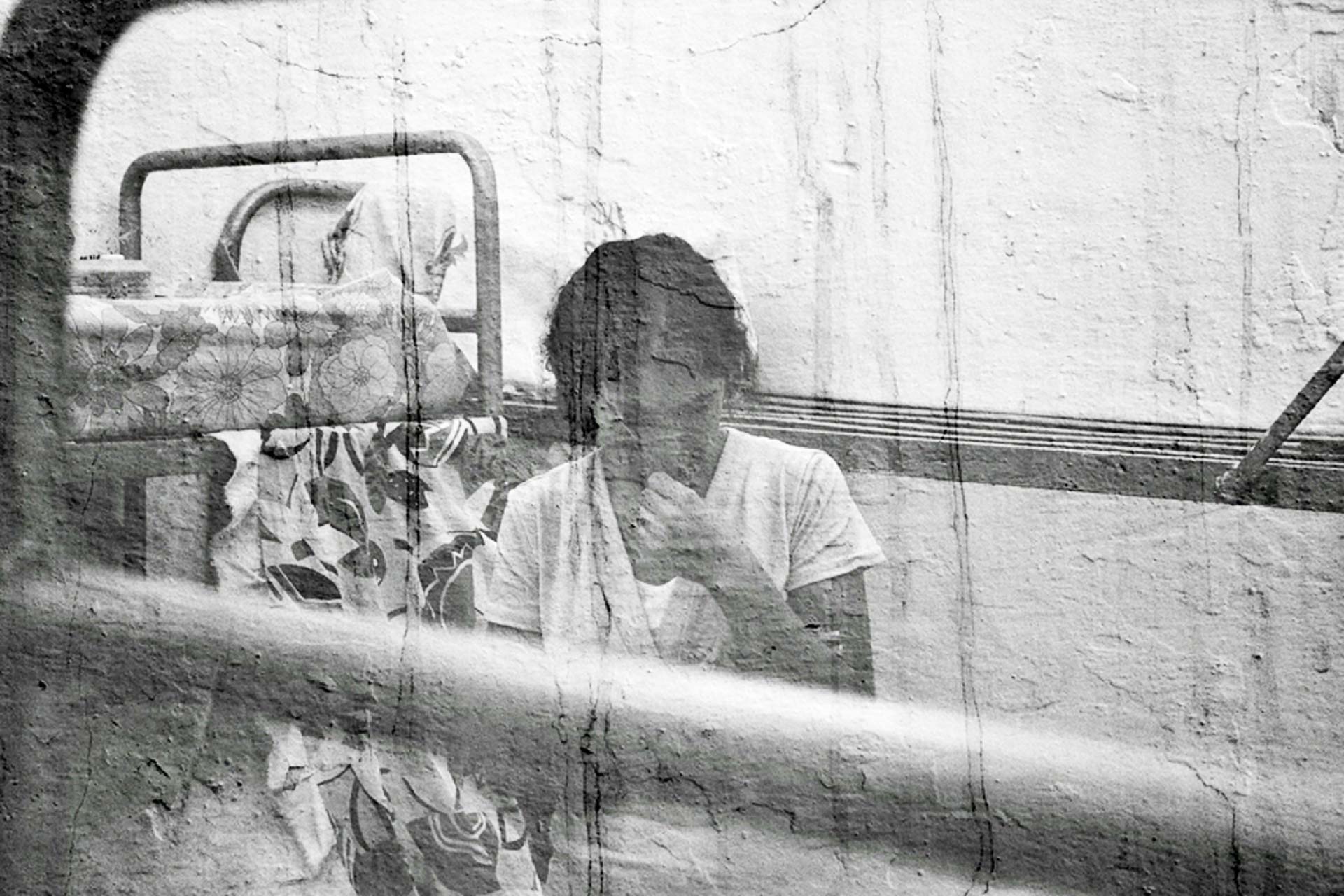
Psychological torture
The two were protected from abuse from guards and the police because of their status and the media coverage surrounding their case, but what they witnessed has stayed with them.
‘‘What struck me was the level of human ingenuity involved in devising methods of destruction, not of physical torture, but of psychological torture. The grime, the lighting, the smells, everything is done to break you in the long run," Alaeddine says.
He's assigned to room 6. There, he is taken in by the Cabran, a prisoner designated as head of the cell due to his seniority and reputation for "good conduct by the prison administration," as described by the judge and artist Hela Ammar in her book Corridors which covers the conditions of Tunisian prisons.
The first thing the Cabran asks Alaeddine is what he has been convicted for. He answers that it is for possession of zatla (hash). "Did you snitch on your dealer?," the Cabran asks him. Alaeddine answers no, so he is assigned a place among those who, like him, come from the Sousse region.
In the prisons, gangs are organized by "districts, regions or tribes," Hela Ammar explains in her book: "Inside the prison walls, gangs are formed through a bond of affinity but also because they are from the same district, tribe, or particular region of Tunisia. Thus, the tribal or regional animosities, usually dormant in society, are suddenly exposed in prisons. These divisions are one main cause of disputes," she describes.
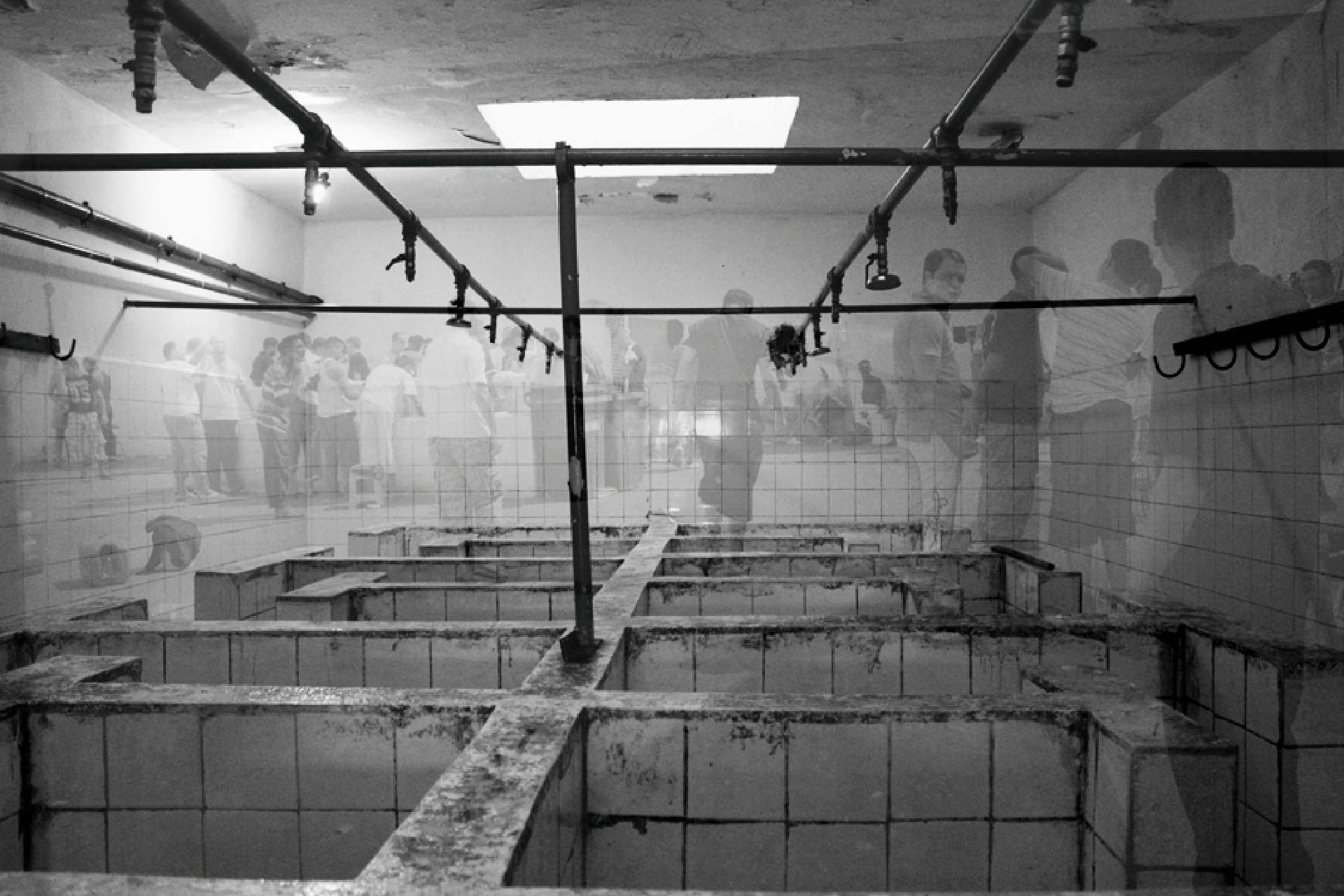
Lack of hygiene and sleep
Alaeddine feels sorry for a man from Sidi Bouzid who is forced to sleep in a much tighter space than his. Contrary to what he feared, there are few conflicts or fights.
"Everything's set up to make people explode. We're all locked up together and have to share everything: our privacy, blankets, the TV. But the Cabran is there to keep everything in order," says Alaeddine. As for the guards, Atef and Alaeddine both hear the same advice:
"Call us if there's blood or someone is very sick, anything else doesn't matter.’’
Two blankets compensate for the lack of a mattress, but this is a privilege reserved for the elders. Atef is from the small town of El Fahs in the governorate of Zaghouan and is the only one in his cell from this region of Tunisia. He is forced to sleep on the "highway:" the alley leading to the toilets.
"For the first few nights, I gave cigarettes to one of the inmates in exchange for temesta (a drug supposed to help with drug withdrawal or anxiety disorders), to help me sleep. It's noisy all the time, you can't get any sleep."
Ironically, Atef says he has seen zatla and other drugs circulating openly among the inmates. As Hela Ammar writes, the in-trafficking of sedatives and other drugs often stems from those in charge:
"In order to cope with the conditions, a considerable number of inmates say they take sedatives. Guards will also confess that they encourage them to do so, in order to calm the inmates’ anxieties and make their work easier. Therefore these pills are provided for them, either by prescription from the few prison doctors or on the low."
The days flow into each other and Atef thinks only of getting some sleep and the possibility of seeing his friends. Alaeddine begins to establish links with some of the inmates. "I became their writer because many of them are illiterate. I wrote letters to their parents as well as to their wives. Another prisoner decorated the letters with drawings."
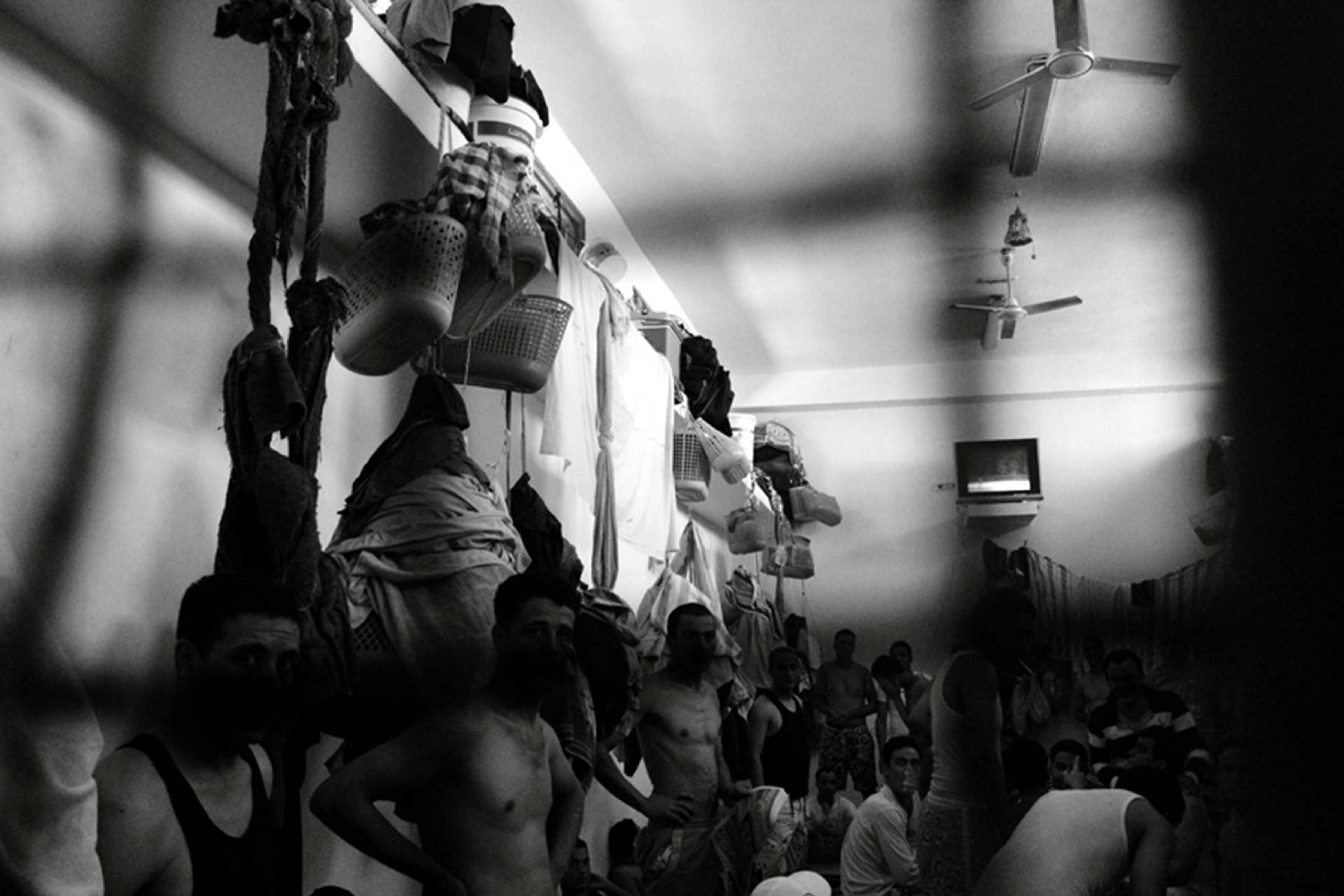
INSANITY AND ABUSE
Atef looks at the cockroaches spread across the walls and tries to forget what he sees. "You have those who are looking for a place to pray, others to masturbate, and all you can think about is how to remain a virgin until the end of your time inside," says Atef. At night, rats and the fear of getting scabies torment Atef. Alaeddine, meanwhile, overhears guards torturing a fellow prisoner.
"It was at night, I heard them beating someone in the yard. He was crying. They asked him to undress and they started insulting his mother."
He also recalls a man sentenced to 20 years for the murder of a friend. "He was like a madman. He didn't wash, he talked to himself, he didn't eat."
Time passes without any structured activities. In her book Corridors, Hela Ammar wrote about a guided tour of the Mornag facility and seeing a room fitted with ping pong tables and computers. The supervisor confirmed to her that this room is never used. As for the library, it takes ten days to get hold of a book, says Alaeddine.
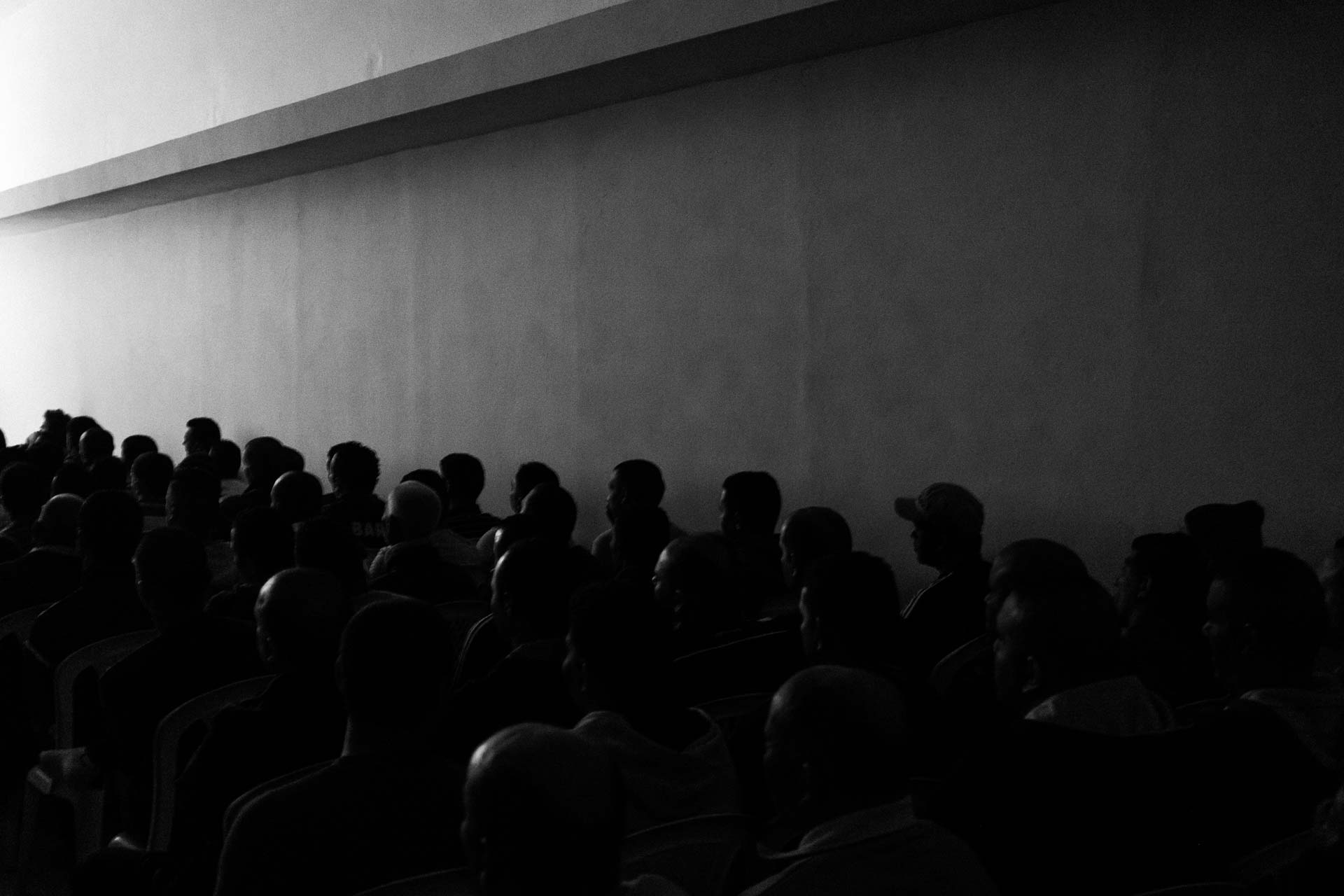
Sacred Television
Television is the only link to the outside world. In Atef's cell, channel changes are pre-set for the day. In the morning, one channel broadcasts the Koran from 8 to 10 am, followed by music videos from Arab channels. ‘‘The television is on continuously," says Alaeddine, "In the afternoon, it's on again for music videos or football matches. And in the evening there is the 8 p.m. prayer on the national channel and then the Turkish soap ‘Wadi al Dhiab-Al Kamin’ on Hannibal TV.’’
"All of a sudden you don't hear anyone talking. It's silence," says Alaeddine.
In Atef’s cell, the inmates prefer to avoid information from the outside world. It creates too much disorder. "There's a hatred of the state and politics, as soon as they see Hamma Hammami or Béji Caïd Essebssi, insults are hurled at them.’’
Similarly, in Alaeddine's cell, everyone avoids political shows. "They're not interested in it, the only one who's acceptable in their eyes is Marzouki because he has pardoned a lot of criminals. But everyone's planning to leave Tunisia. No one wants to stay. They look for contacts in prison so that when they get out they can leave quickly," says Alaeddine.
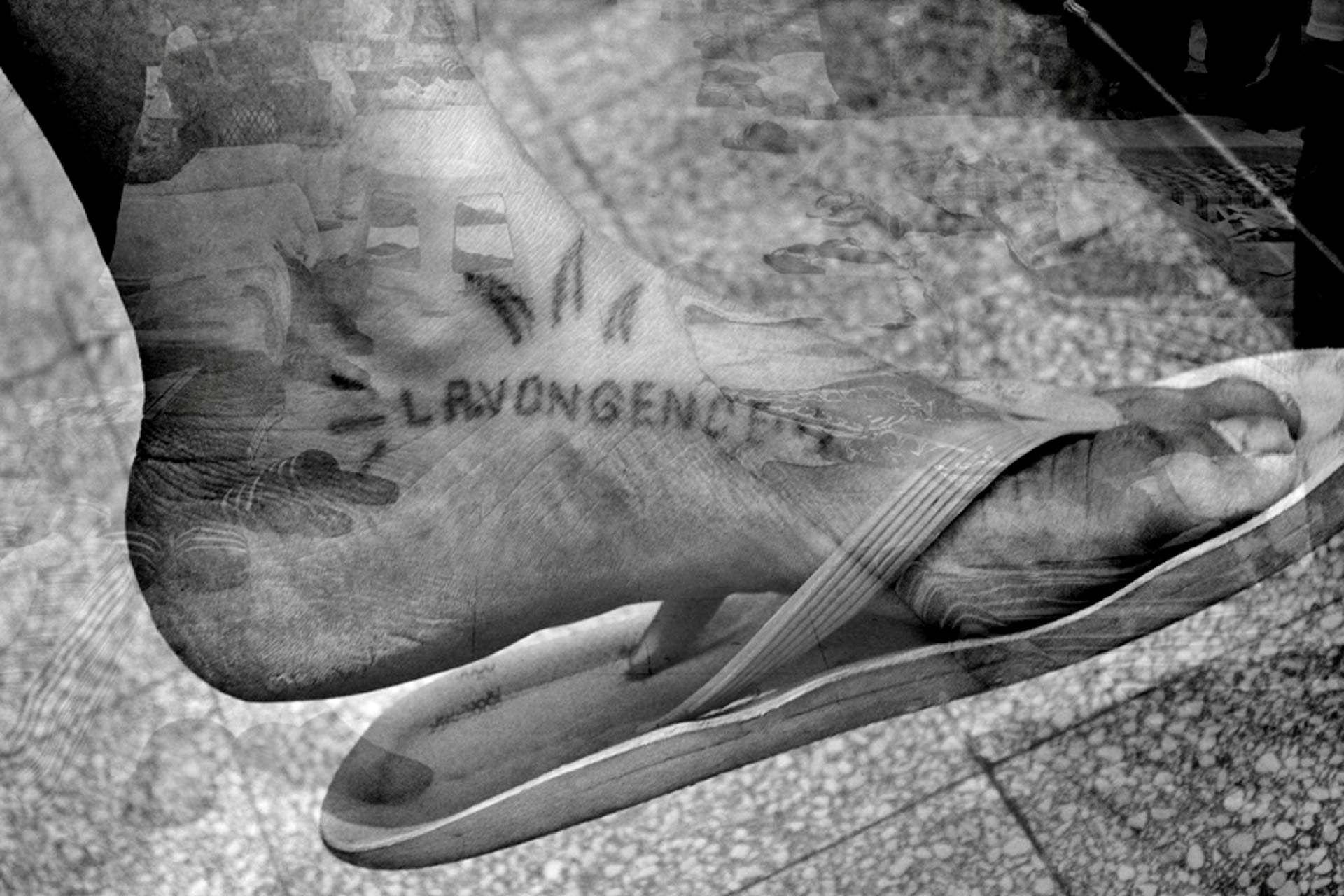
LEaving TunisiA
Among the detainees locked up with him, Alaeddine says he has seen human traffickers and clandestine migrants. But what is most striking, he says, is that the majority of the detainees are coming from underprivileged social backgrounds and have often been abandoned by their families and friends.
For Atef, the hardest thing is the absence of women and the effect this has on inmates. "Here you discover very vulgar perspectives on women. Some are rapists, others are crazy, but many are sexually frustrated.’’ Alaeddine survives his daily life by thinking of only one thing: getting back to his wife before she gives birth. She comes to see him every week with her mother. She gave birth five days after his release. On the other hand, Atef's first goal after his release is to get out of Tunisia as quickly as possible.
"I can leave Tunisia. I have a visa because of my status as an artist and because I exhibit abroad, but when I think of all those people who didn't have a chance, Alaeddine and Fakhri…"
Alaeddine and Atef are children of the Tunisian revolution and today feel betrayed by their own country. Yet, they know the country’s weaknesses. They witnessed Tunisia win a Nobel Peace Prize award from their television in prison.
On January 14, 2011, Alaeddine was taken with his wife and about 40 other people to the basement of the Ministry of the Interior. For him, the Tunisian police remain who they have always been: "An armed gang constantly in territorial disputes with the people."
Alaeddine and Atef share memories of people who were not as lucky as they were; those who may wait months or even years for a trial. Before leaving, they took phone numbers of a few inmates’ families so they could update them about the lives of the people they were slowly losing touch with.
Atef recalls one of the detainees telling him that he was beginning to forget the faces of his relatives. After his time in prison, he has little hope for the future of young people in Tunisia.
"When you spend a month seeing the value of a tomato, a drop of olive oil in your lunch, you completely lose sight of Law 52 or cannabis. The real fight is the conditions of prisons and prisoners in Tunisia. It kills you slowly in there. We're all on parole in this country," Atef concludes.




